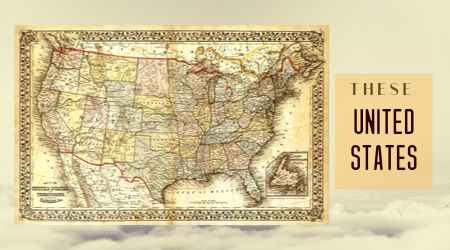-
U.S. States
- Alabama: The Heart of Dixie – Lesson
- Alaska: The Last Frontier – Lesson
- Arizona: The Grand Canyon State – Lesson
- Arkansas: The People State – Lesson
- California: A US State and a Mythical Island – Lesson
- Colorado: Pikes Peak or Bust – Lesson
- Connecticut: War, Trade, and Fundamental Orders – Lesson
- Delaware: A Little State with a Big History – Lesson
- Florida: A Contested Land – Lesson
- Georgia: A Refuge for Debtors and the Poor – Lesson
- Hawaii: A Land of Volcanoes – Lesson
- Idaho: The Gem of the Mountains – Lesson
- Illinois: The Land of the Illini – Lesson
- Indiana: Land of the Indians – Lesson
- Iowa: From Conflict to Corn Belt – Lesson
- Kansas: On the Trail West – Lesson
- Kentucky: Through the Cumberland Gap – Lesson
- Louisiana: The Heart of One of America’s Best Deal – Lesson
- Maine: The Pine Tree State – Lesson
- Maryland: A New Start for Religious Freedom – Lesson
- Massachusetts: The Bay State – Lesson
- Michigan: Water Winter Wonderland – Lesson
- Minnesota: Land of 10,000 Lakes – Lesson
- Mississippi: The Magnolia State – Lesson
- Missouri: The Unwilling Slave State – Lesson
- Montana: The Treasure State – Lesson
- Nebraska: The Cornhusker State – Lesson
- Nebraska: The Cornhusker State – Quiz
- Nevada: The Silver State – Lesson
- Nevada: The Silver State – Quiz
-
U.S. State Capitals
Indiana: Land of the Indians – Lesson
The Indians fought so fiercely to keep their land that the state was named for them.
On December 11, 1816, Indiana became the 19th state to join the Union. Like many other territories, before it became part of the United States, it was first inhabited by indigenous people, dating back more than 15,000 years. The most well-known tribes of the land were the Cherokee, Chickasaw, Lenape, Shawnee, and Wyandot.
 For many generations the natives lived off the land, occasionally fighting battles over territory and food. Their way of life changed in the 1600s when the French started exploring the area. French Explorer Robert Cavelier, aka Sieur de la Salle, started establishing a military presence. Soon, the British arrived and it wasn’t long before the two countries fought over the territory known as Indiana during their quest to gain control of North America. The British were victorious over the French in 1763. By this time, however, the settlers of the New World had grown dissatisfied with British rule and citizens came together to begin the Revolutionary War.
For many generations the natives lived off the land, occasionally fighting battles over territory and food. Their way of life changed in the 1600s when the French started exploring the area. French Explorer Robert Cavelier, aka Sieur de la Salle, started establishing a military presence. Soon, the British arrived and it wasn’t long before the two countries fought over the territory known as Indiana during their quest to gain control of North America. The British were victorious over the French in 1763. By this time, however, the settlers of the New World had grown dissatisfied with British rule and citizens came together to begin the Revolutionary War.
The battles did not stop after the Americans had gained their independence from Britain. Native Americans, who were tired of losing their land to the settlers, started frequent uprisings. In fact, there were so many battles against the natives, the state’s name, Indiana, literally means “Land of the Indians.” Two decisive victories ended the war between the settlers and the indigenous peoples: Fallen Timbers led by Gen. Anthony Wayne in 1794, and Tippecanoe, led by the future president, General William Henry Harrison, in 1811.
During the Civil War, nearly 210,000 people, about 15% of the state’s population, fought for the Union. So many volunteered, in fact, that thousands were turned away during the first call for soldiers.
Interesting Facts
- America’s first train robbery occurred in Indiana. On October 6, 1866, the gang known as the Reno Brothers stopped a train in Jackson County and made off with $13,000.
- On May 4, 1869, the first professional baseball game was played in Fort Wayne, Indiana. Before they were the Cincinnati Reds, the Red Stockings played against the amateur Great Westerns of Cincinnati – the Red Stockings were victorious with a score of 45-9. In 1883, the first night game under artificial lights was played, also in Fort Wayne.
- Notorious bank robber John Dillinger, dubbed “Public Enemy No.1,” allegedly escaped Crown Point Prison on March 3, 1934, while brandishing a wooden “gun” that had been blackened with shoe polish. He used the sheriff’s car as the getaway vehicle which started a federal manhunt ending in his death on July 22.